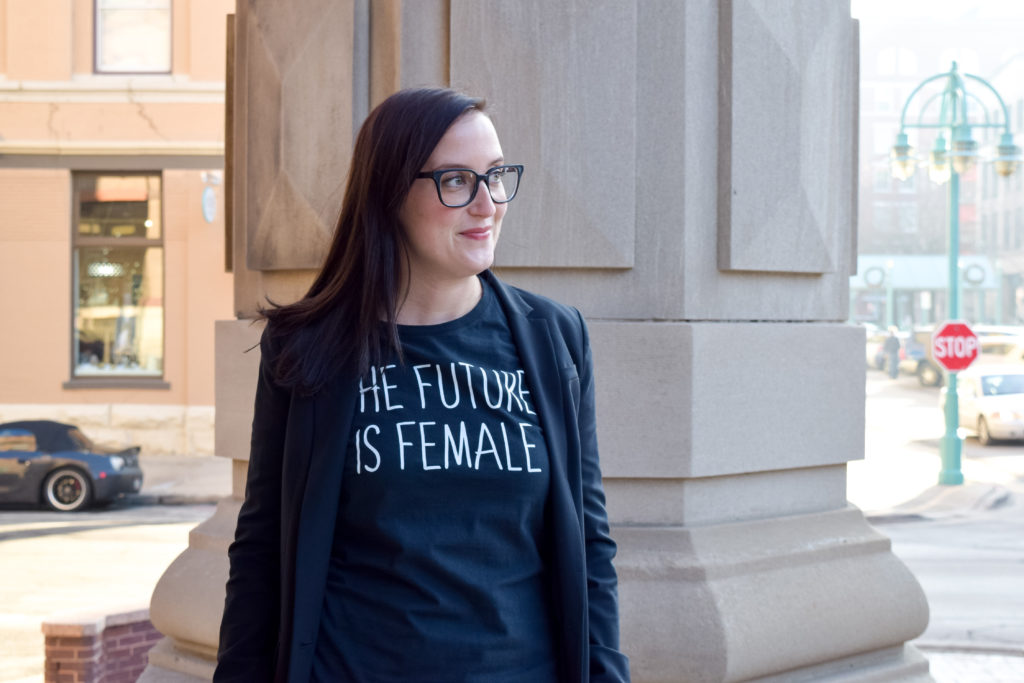
The 9-5 workday was designed for white men.
(^No seriously, discrimination was still legal when the 9-5 became the norm.) If we want to experience more inclusive leadership opportunities, we need to evolve and adapt in business and commerce similarly as we have in other areas of our accomplishments.

The modern workday is a product of nineteenth-century socialism. Most of us have heard that Henry Ford was the mastermind behind the 40-hour work week, but the standard really began in the late 1800s, long before Ford. It was pretty straight forward: “Eight hours labor, eight hours recreation, eight hours rest.”
In 1938, the Fair Labor Standards Act was ratified, setting the workweek at 44 hours/week. In 1940, the bill was updated and we’ve had an official 40-hour work week ever since.
We have had the same labor ideals for almost 80 years. 80 years.
Why?
Because we were trying to make factories run more efficiently.
So, given that most of us aren't working in factories anymore, is there good reason for this policy to still be in effect?
Great question.
Let’s take a gander at a few things that have changed in society since 1940, just to see what we’re working with here:
1940 - 1945: 5 million women enter the workforce. As they stepped in when millions of American men served in World War II. While a small percentage of women did work outside of the home prior to 1940, this boom was instrumental in launching women into the workforce.
1948: The Universal Declaration of Human Rights was adopted by the United Nations General Assembly. It declares that human rights are universal – to be enjoyed by all people, no matter who they are or where they live.
1959: Alaska and Hawaii joined the United States. Rounding out our full 50 United States.
1963: Martin Luther King, Jr. delivers the “I have a dream speech.” Vocalizing the necessity of equality in humanity.
1964: The Civil Rights Act was passed. The Civil Rights Act of 1964 was passed to end segregation in public places and banned employment discrimination on the basis of race, color, religion, sex or national origin.
1969: We first landed on the moon. Neil Armstrong first set foot on the moon.
1981: The first woman was appointed to the Supreme Court. Sandra Day O'Connor was appointed to the U.S. Supreme Court with unanimous Senate approval. The U.S. Supreme Court first began in 1790. It only took this country 191 years to realize it might be beneficial to have a woman’s perspective included, just a mere 205 years after being founded. Cool cool.
1993: The second woman to the Supreme Court. Ruth Bader Ginsburg was appointed to the U.S. Supreme Court. Not too shabby. It only took 12 years to add a second woman to the U.S. Supreme Court, 179 years quicker than the first! Progress, people, progress!
1993: The internet was created. And so were a new onslaught of careers (including mine). Amen. Whoever said nothing happened in the 90s was MISINFORMED!
1994: FRIENDS launched. Changing the friendship goals of every 20 and 30 something for the rest of time.
2004: FRIENDS ended. But don’t worry, you can still catch them on TV and Netflix literally all of the time. So it’s all good.
2008: The first non-Caucasian man is elected as President of the United States. Barack Obama was elected as the 44th President of the United States of America. All 43 previous presidents all being Caucasian men.
2015: The U.S. Supreme Court ruled in favor of same-sex marriage nationwide. Allowing people to love whoever they’d like to love. Pretty nice of them.
2016: A reality television show host is elected President of the United States. A true milestone.
Now, we have made incredible strides as a country. We added two more states on our union, elected an African American man President a mere 44 years after the Civil Rights Act was passed, landed on the moon, women started making moves in legislature, the world wide web was launched along with the greatest television series to date, and we started embracing acceptance.
Now riddle me this. If we can send a man to space, elect women to the highest position of policy creation, and somehow convince the most powerful country in the world to think it’s a wise idea be lead by a former reality television show host, how is it that we are still maintaining that the most effective way to run a working world that is largely driven by data and technology is by arriving at 9am and “leaving” at 5pm?
Societal standards could use a facelift to better align with and reflect the changes we’ve experienced as a country. And one of the biggest changes since 1940 has been the grand entrance of women in the workforce.

However, given the lack of changes in the working world over the last almost 80 years, we’re still running into obstacles prohibiting career growth. In a recent study conducted by Werk, a platform that measures analytics impacted by workplace flexibility, 70% of women who dropped out of the workplace said that they would still be working if they had flexibility. We’re not asking to get paid the same and do less work, we’re asking to bend a little and allow a 24-hour time span of hours to choose from instead of eight.
The 9-5 was designed to create balance in the lives of those in the workforce at the time it was created (white men). However, given our brief history lesson, it appears that just about everything has changed since the 1940s including the entrance of all people joining the workforce. Schedules are unpredictable—especially when it comes to childcare, health, and schooling. It’s time for workforce standards to catch up allowing for greater diversity in continued leadership and ongoing career trajectory.
To all the companies out there that demand a traditional 9-5, you’re going to have a tough time keeping and acquiring diverse top talent and that legacy will come back to bite you in the behind sooner than later.
To all the ladies out there who want to have their cake and eat it too, let’s chat.
I have extra forks to share.

Kiley Executive Coach & Consultant
Kiley Peters is a serial entrepreneur, national speaker, executive coach, and small business consultant. Having personally counseled over 100 small and medium-sized businesses on operations, business development, digital marketing, and consumer behavior analysis over the last 17 years Kiley is incredibly passionate about serving small business owners. She is the Founder and CEO of Brainchild Studios, a research and business strategy partner for small businesses and mid-market executives, and also created the Work From Home Playbook, a series of online courses guiding aspiring entrepreneurs through the steps of starting a virtual business. With these experiences in her back pocket, she understands the challenges and struggles small business owners encounter.
more posts by Kiley →


